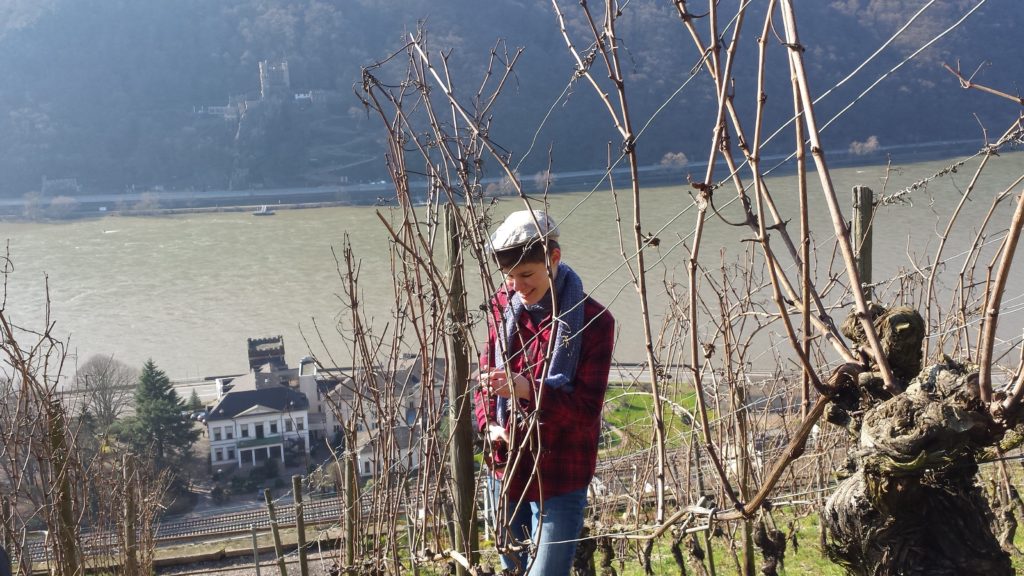
As a freshman, Emily Goodling approached Associate Professor of German Fred Yaniga at the freshman dessert to tell him that she, not satisfied with the English translation, wanted to read Thomas Mann in the original German.
“It’s kind of that sense of never being completely satisfied that really describes Emily,” Yaniga said. “She always wanted more, she always wanted to learn more. Wanting to learn German for that purpose was just the first indication I had about her nature — her inquisitive nature — and her academic fire.”
After two years of living in Germany, Goodling ’14 has just moved back to the U.S. to pursue her doctorate in German studies at Stanford University, hoping ultimately to teach at a school like Hillsdale.
After just two years of studying the language at Hillsdale, Goodling learned to speak German at the level of an educated native speaker. Her German is now “indistinguishable” from that of a native speaker, Professor of German Eberhard Geyer said.
After experiencing Germany during Hillsdale’s summer programs, Goodling said she “fell in love with Germany.” She said knew she would have to spend time there to gain more knowledge of the language and literature.
She graduated from Hillsdale as salutatorian, and was offered both the Fulbright and Deutscher Akademischer Austauschdienst German Academic Exchange Service scholarships, both highly competitive. She turned down the Fulbright and moved to the town of Mainz to pursue her master’s degree in comparative literature. Mainz sits on the border of wine country. There, she met the man she would marry, a winemaker.
She also discovered German theater, which plays a crucial role in the country’s culture. Even in Mainz, a comparatively small city, the theater put on performances every night. Subsidized by the government, theater companies can afford to take artistic liberty and explore difficult questions.
“German theater has a level of political awareness and involvement that you don’t see in America,” Goodling said.
Plays and operas often explore social and political hot topics in “hard-hitting” ways.
“Those things were very exciting to me, to see this connection between something in the arts and humanities like theater, and then the real world of political policy,” she said.
When Geyer remembers Goodling, he said that in a letter of recommendation he wrote for his past student, “My first line was, ‘Emily Goodling is the best student I ever taught in 36 years at Hillsdale College and nine years at State University of New York.’”
Geyer noted Goodling’s aptitude to seeing connections across disciplines.
“When she looked at a literary text, she looked at it from a musical, logical point of view,” he said. “So when we studied a certain author, she noticed that there was almost a symphonic structure in the text, a thing I’ve never seen.”
She said having a grounding in the Western heritage from her courses at Hillsdale “was really helpful as I went to Europe where in many places — and especially in the theater — that European Western heritage is being critiqued and is subject to questioning.”
Goodling said Germany changed and broadened her perspective on culture, and she hopes to to pass on this knowledge through teaching.
“I think that America, unfortunately, has in many areas a sort of insular or isolated perspective on things that are happening in the world, especially because it’s such a big country,” she said. “That experience of living abroad really gave me perspective that I wouldn’t have been able to gain otherwise.”

